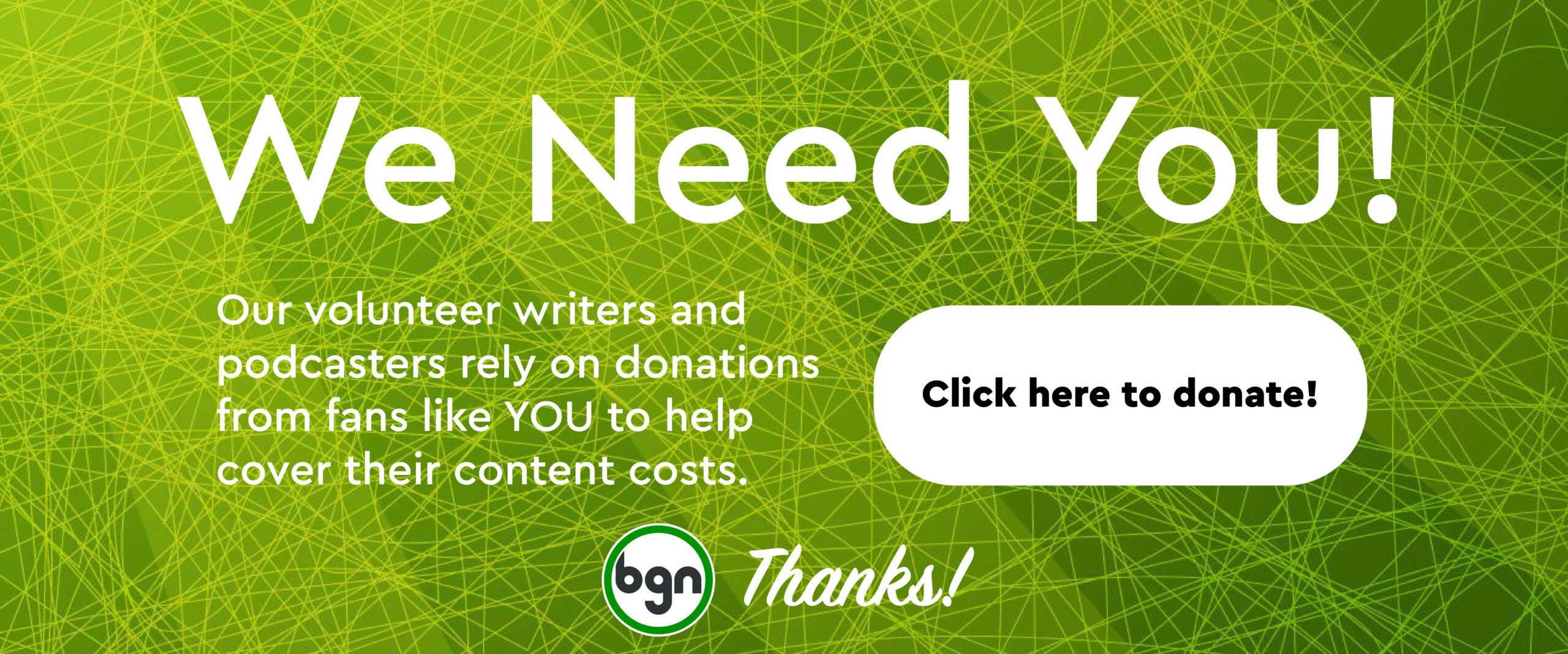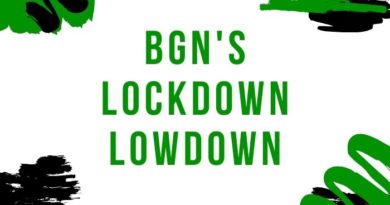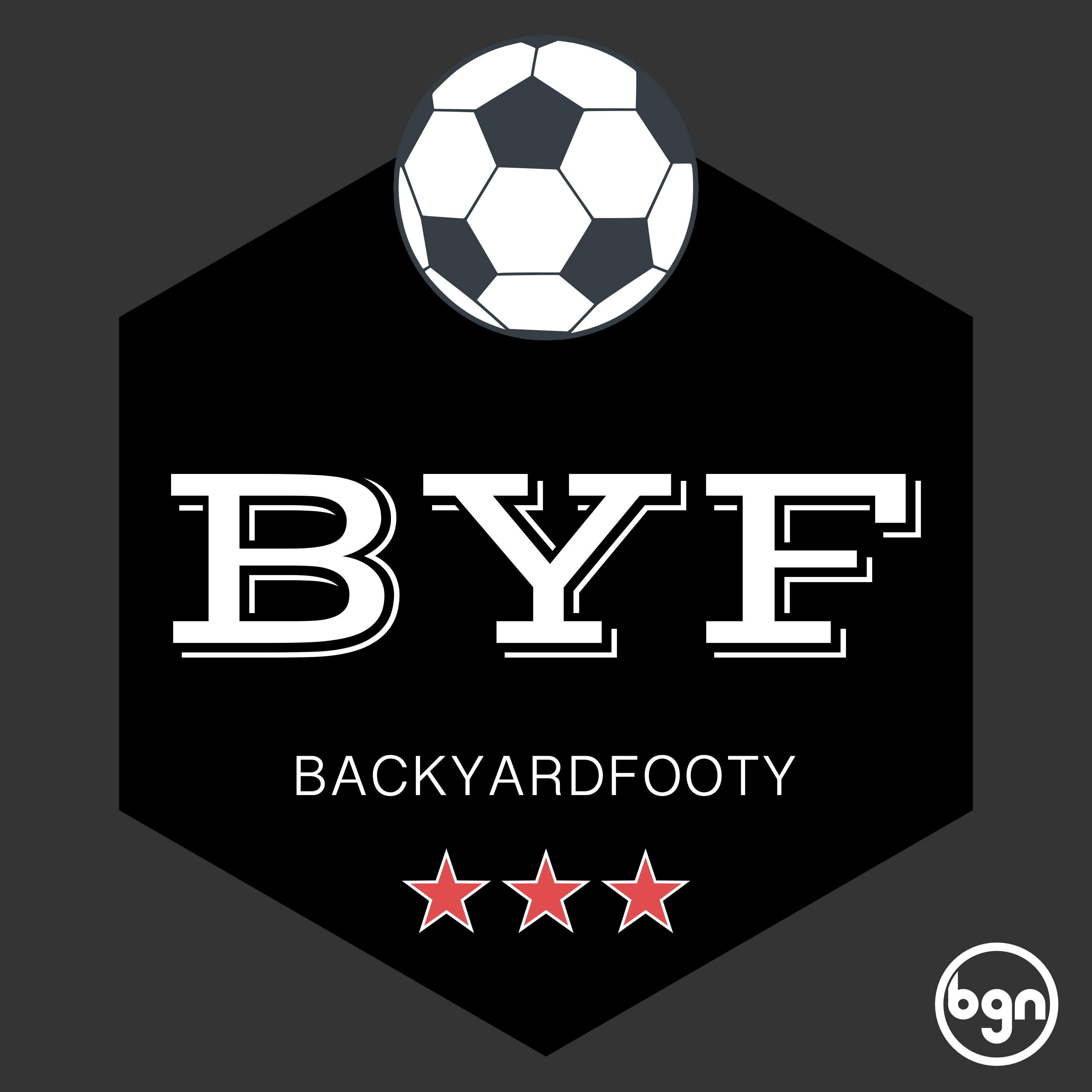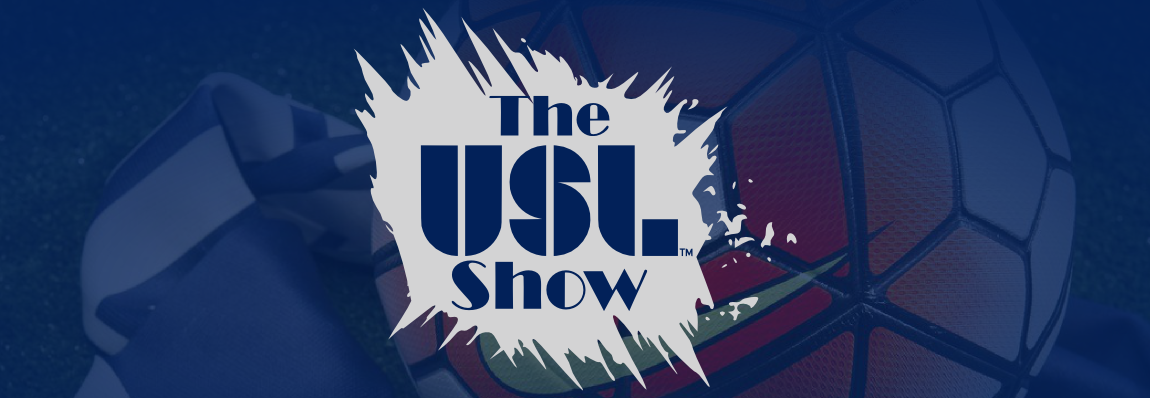Black Lives Matter: USL players speak out
Since the killing of George Floyd last week in Minneapolis, the never-ending injustice facing black people in America has come back to the forefront with protests across the country and social media posts with the hashtag #BlackLivesMatter. Rather than just putting out a cookie-cutter statement in support of the black community, the Beautiful Game Network wanted to give this platform to black players across the USL Championship to explain the struggle they go through on a daily basis, their feelings during these intense times, the things they would like to see changed in the future, and more.
The quotes you see below belong to the following players: Tobi Adewole of Saint Louis FC, George Davis IV of Louisville City FC, Peabo Doue of Loudoun United FC, and Kevan George and Brandon Miller of Charlotte Independence.
(These quotes were primarily gathered by Hugh Roberts, Charlotte Independence defender, Backyard Footy host, and the man behind these powerful words)
What are you feeling right now with everything going on?
Tobi Adewole: To be honest, it’s hard to describe in words how I’m truly feeling. Some emotions I am currently experiencing are anger, disappointment, hopelessness, frustration, sadness, helplessness, and many more. How is one supposed to feel when there does not seem to be a light at the end of the tunnel? Frustration because we still have people questioning why it’s “Black Lives Matter” instead of All Lives Matter. If black lives don’t matter then all lives CAN’T matter, simple. My biggest fear is becoming numb to all of it because my heart is so heavy. I will never tell someone how to react in times like this because when you see people complying and not resisting arrest (even if it’s wrongful) and still end up dead? How do you react from something like that? That could be me, that could be my siblings, my cousins, my parents, or my children….can’t be land of the free, home of the brave when a people are oppressed.
George Davis IV: Angry, sad, confused, frustrated. Constant questions of ‘why?’ and what I can do to make it better for my people and myself. Its been too easy for people to ignore the injustices and oppression in this country. The system isn’t broken; it was built this way. But now, people are being forced to see. There is nowhere else to look. People are being forced to see the truth and yet still a small group of people can find a way to deny it. Well, I hope these people are very uncomfortable right now because black people have been uncomfortable since the birth of it all. It hurts me to see the pain in the eyes of my brothers and sisters, but something has to be done. Up until this moment, its been very hard for me to put any of my thoughts into words. This is heavy, but we are strong and I believe we will prosper. By any means necessary.
Peabo Doue: I feel a lot of mixed emotions right now. Not sure if words can truly justify how I feel. I’m sad, angry, exhausted, and confused. I’m hopeful because I see how quickly people have come together and publicly expressed their thoughts and feelings towards everything. For me, that is a great initial step towards change.
Kevan George: Initially fear, anger, and sadness surfaced, but as things continue to unfold, it is hard to process any feelings. 2020 has really been the year of vision with so many hidden truths coming to the forefront. The underlying problems and injustices that have been swept underneath the rug has finally been exposed and sparked responses/action amongst all groups of people. Some people have kept these issues under the rug for decades and are uncomfortable with addressing it, while the majority have decided to stand with us.
Brandon Miller: It’s honestly hard to put into words exactly how I am feeling right now. There is a mixture of emotions that come and go, but the one that stays constant is the rage I feel. The anger I feel, towards a society that continues to allow senseless murders to happen, is genuinely hard to put into words. The exasperation I feel, towards the willfully ignorant who continue to do their best to justify a corrupt and unjust system, is really hard to quantify. The pain I feel, for the family of yet another innocent life who was taken wrongfully at the hands of the very people who are tasked at protecting us, is immeasurable. The disappointment I feel, towards myself and others who have yet to find a way to make an impact large enough to combat the growing racist sentiment, is something that weighs heavily. Emotions are running higher than ever, but I am doing my best to channel that energy towards change as opposed to wasting it arguing with the less informed.
Have you dealt with racism on the pitch? How did you react and how difficult is it to focus on a match at that point?
Tobi Adewole: Thankfully, I have not dealt with racism on the pitch, but unfortunately, I have seen many cases around the world. Personally, I would not be able to focus. How can you share the pitch doing something you love with someone who does not see you as an equal?
George Davis IV: As a professional, I have not dealt with much racism on the pitch. When I was in high school, a group of students were shouting racial slurs at me during a game and I used my anger towards them to increase my intensity and desire to win. After the match, I was in more of a state of rage and anger looking for a way to retaliate. Luckily, the black men in my life were there to support me and give me guidance through that difficult time. I have always tried to use this idea as motivation. To be a good representation of my community, culture, and family; and if people were going to create an opinion on black people, based on my actions, it was going to be positive and exceptional.
Peabo Doue: Not so much at the professional level. I’ve definitely felt stereotyped by coaches and teammates in regards to my ability, but I honestly can’t recall ever hearing a fan, player, or member of the staff make a direct racist remark towards me at this level. With that being said, I’ve experienced direct racism quite a few times prior to becoming a pro. I’ll never forget the first time it’s happened to me. My opponent was frustrated with how the match was going and responded by calling me a “black n****r”. I was so shocked that those words came out of his mouth, it took me a few seconds to actually process what was said. After I came to the realization, I angrily charged him and my teammates followed. All hell broke loose, coaches and parents got involved and the match was actually called off shortly after that. Fast forward a few years to when my academy team was playing in an international tournament in Madrid. We had a match against Sevilla’s youth team and just as we were getting off of the team bus to enter the stadium, some of Sevilla’s fans started making monkey gestures and noises at us. They continued to do this during warm-ups and when the game started. Fortunately, we scored the only goal of the match and as a goal celebration, our kitman tossed my man Topher Hegngi a banana and he ran to the crowd, peeled it, and took a massive bite. It was unreal, honestly. Almost like a scene from a movie. That situation was still heavy, but I guess we used it in a more motivating way.
Kevan George: I have not dealt with racism on the pitch, but ex-teammates and close friends have experienced it in college soccer and the professional ranks. They recall fans, both young and older white folks, screaming racial slurs amidst fan support so they cannot be easily identified. My friends did not report it to their coaches at the time because they felt that it would be pointless to engage in a battle where social injustices were already prevalent in everyday life and did not receive much attention
Brandon Miller: My first memorable experience with racism on the pitch was when I was 15 or 16 years old. My team had just given up a penalty kick and I was standing on the PK spot arguing with the ref. The shooter walked up and used some racially charged language to implore me to get back in the goal. The ref heard it and said nothing; I stood there stunned for a second, unsure what to say back. Then the anger filled my body and I walked back to the line. I held my rage inside until I saved the penalty kick and then let my anger be known.
The honest truth is there are probably fans that watch and root for you on Saturdays in their favorite team’s kit that don’t respect you as a person because of the color of your skin. How does that make you feel?
Tobi Adewole: Well, it doesn’t feel good. Yes, I am a professional athlete, but I’m a human being first. I’m a brother, an uncle, a son, and so much more. But when I’m on the pitch, I don’t focus on stuff like that because it only leads to negativity and it’s counterproductive. As long as they stay away from me then we won’t have any problems…
George Davis IV: I can’t control who supports my team on the weekend. And I can’t control the opinions of those who do not know me. But, it angers me to know that there are (probably) people like that in the stands. It angers me even more that, outside of my abilities as an athlete, I wouldn’t get the respect I deserve because of the color of my skin. But I won’t put my energy into those few until the day I’m confronted by or in a position to converse with one of those fans.
Peabo Doue: I don’t really get it, but I guess it’s a sad reality. How is it that you support a team and have zero empathy for the players who play for that team? I just don’t understand that. But to be completely honest, I couldn’t care less. I was raised by an amazing woman who taught me to judge people by their actions. The color of your skin has absolutely nothing to do with how I feel about you. That’s how I will raise my kids.
Kevan George: If there are fans that do not respect me because of their preconceived beliefs, that’s a problem that they’ve developed over time and have to solve from within. They didn’t get a chance to get to know me as a person so it would not affect me or my performance.
Brandon Miller: The only “fans” that I worry about in that regard are the ones who have the power to impact change both on and off the pitch. Team owners, government officials, wealthy businessmen; these are sports fans who have a massive effect on society through their actions outside of the arena and if their racist views consistently have negative impacts on minority groups then it makes it impossible to ever find true equality.
As a professional soccer player, how can you and your peers use your platform to help and what changes would you like to see made?
Tobi Adewole: We can use our platform for so much. Spreading awareness to the injustices occurring that people we know and love experience. Sharing personal stories about how you have been targeted to show your fans that they aren’t alone. It’s nice when you see a celebrity stepping out of their bubble to address issues that may not necessarily impact them. Professional athletes can use their platform so the message can reach more and more people. It can be as simple as sharing donation links or even a small message showing you are an ally (the bare minimum). A lot of people are ignorant to what goes on in the world outside their own space. Justice won’t be served until those who are unaffected are as outraged as those who are.
George Davis IV: We can absolutely use our platform to help. Some players are able to use social media, others have blogs and podcasts, and some will take action on the front line. Regardless of how we use our platform, it is vital that we communicate and bring awareness to the people in our circles. Conversations need to be had and most will be uncomfortable, but that is what is required in order to move forward in a positive direction.
Peabo Doue: Most people know that I am pretty lowkey when it comes to social media, but I’ve kind of had to come out of that shell and speak up. As a black athlete, it is my responsibility to stand for what I believe in. I’m not a politician, nor am I an activist, but I understand that I have a platform to help spread awareness and positive messages. For me, the next step is to follow in my brother Hugh Roberts’ footsteps and connect with groups that represent what we are fighting for whether that be by donating or partnering, just being a resource any way that I can be.
Kevan George: In addition to posting messages on various social media platforms, it is essential for us to have face-to-face conversations with people within our community. Engaging in face-to-face discussions with different groups in the community, regardless of how uncomfortable, is the most effective form of communication in times of crisis. It brings more meaning and credibility to the message being communicated and both parties could resolve any different opinions or move forward amicably. The point is not to get the opposing group on your side after an interaction, but more so to encourage future conversations and bring understanding to the cause. I also believe that the support and involvement of white teammates during this time and beyond will create the picture that #weAREstrongerTOGETHER. Minorities have banded together for many years on similar issues for decades and we are still at this point in 2020. The advocacy and solidarity of our white teammates will not only build an impenetrable bond on the field but will send a powerful message of how we as a country should come together as one unified voice.
Brandon Miller: I think there are plenty of athletes using their platforms to effect change both domestically and globally. There are many well-known athletes, such as Lebron James, who are using their voices to implement changes on a macro-level. I think athletes, like myself and other USL players, have to do even more to make changes on a micro-level. We have to support the local government officials who are pounding the pavement in communities that need help the most. We have to visible, positive role models who are willing to stick our necks on the line in order to show solidarity for the disenfranchised. There has to be more talk coupled with more action from us all.
While it’s an impossible task, if you had to show a movie or play a song for someone that isn’t a person of color to illustrate the struggle the most, what would that be and why?
Tobi Adewole: Um to be very honest, I don’t think there is a movie or song out there that I could show a white person that illustrates the struggle. You have to live a day in my shoes or my brother’s and sister’s shoes to truly understand what it means to be black in not only this country but in this world.
George Davis IV: “HiiPower” by Kendrick Lamar, “Redemption Song” by Bob Marley, and “Down” by Lupe Fiasco.
Peabo Doue: If it’s even possible, to name a few songs, “Changes” by 2pac, “We The People” by A Tribe Called Quest, and pretty much the whole To Pimp A Butterfly project by Kendrick Lamar. A few of my favorite movies are Fruitvale Station, The Hate U Give, Do The Right Thing, and the Netflix series “Dear White People” is actually very informative for both white and black people.
Kevan George: “This Is America” by Childish Gambino is a perfect depiction that illustrates the struggles faced today. This music video touched on issues ranging from racial injustices, gun violence, and mental illness stigma that have plagued/crippled black people and its communities. These issues have been prevalent for decades, but now they’re being recorded to be viewed around the world as a subtle reminder that we are inferior to our white counterparts.
Brandon Miller: Immediately, one scene from the movie Crash comes to mind. Terrence Howard and Thandie Newton are pulled over by a white cop and forced out of the car to be searched. Thandie Newton is a little intoxicated and livid about being pulled over for no reason. Terrence Howard tries to calm her down but she is visibly upset with the officer. The officer goes to pat down Thandie Newton and places his hands in some inappropriate places while her husband watches helplessly. The powerless feeling is displayed all over Terrance Howard’s face and it perfectly displays the powerless feeling I’ve felt many times when having to deal with authority figures. It’s how many black people feel on a daily basis when constantly having to deal with a society that doesn’t value them.
Are there any black-operated non-profits or charities that you support or that you’d like to acknowledge?
Tobi Adewole: I would love to shoutout the Black Renaissance Group which is a for-profit organization that consults black enterprises on business solutions for overall better community empowerment!
George Davis IV: Support the movement. Don’t be naïve to the problems people are facing, regardless of how easy it is for some to ignore them. This is bigger than money for me. However, we need money in this society to make things happen. So any financial contribution to any of the many charities and non-profits is valued and appreciated.
Peabo Doue: First and foremost, the Black Lives Matter organization has been great for not only raising awareness but providing meaningful resources. I’m currently in the process of researching more groups that are driving change but Campaign Zero, Color of Change, and The Marshall Project are great organizations that I have recently come across.
Kevan George: There aren’t any black-operated non-profits or charities that I actively participate in at the moment, but I’d wholeheartedly support those that pique my interest.
Brandon Miller: I worked with an organization called ReThink to help bring awareness to their #TacklingConsent campaign for a couple of years. The organization was founded by Tahir Duckett and I love their mission. The second organization I continue to do work with is The Henry Kalungi Foundation. It was founded by former professional Henry Kalungi and he does a lot of great work both domestically and internationally to help those less fortunate.
Who are some historical black figures that you especially pull guidance or wisdom from?
Tobi Adewole: Muhammed Ali, Jesus, Maya Angelou, James Baldwin, Bob Marley, Malcolm X, and so many more.
George Davis IV: Malcolm X. Marcus Garvey. Carter G. Woodson. Martin Luther King Jr. Angela Davis. James Baldwin. Muhammed Ali.
Peabo Doue: Historically, Martin Luther King Jr., Malcolm X, and Muhammad Ali. In current times, Barack and Michelle Obama. Denzel Washington. LeBron James.
Kevan George: Bob Marley, Nelson Mandela, and Maya Angelou.
Brandon Miller: Malcolm X has always, and will always be, one of my favorite historical black figures. I’ve read, watched, and listened to a lot of his thoughts and opinions and they really resonate with me. I think he is often misunderstood and inaccurately portrayed by the masses but having consistently studied his work, I feel like I have a good understanding of his purpose and how it still rings true today.
What would it mean to you to see owners/clubs put out statements against racism AND provide some action (donation, awareness, etc.) for the cause?
Tobi Adewole: Oh Lord! It would mean the absolute world…again…bare minimum here…but it would mean a lot. It would mean they value you beyond your ability on the field…
George Davis IV: It only means something to see statements against racism from owners/clubs if it’s REAL. A statement or proceed means nothing if not sincere. The problems and issues need to be addressed within the organizations. Not to say they are responsible for what is going on. But there is a responsibility to the people in every organization to create awareness and change from the bottom to the top, in relation to the current issues of our society.
Peabo Doue: Everything. For me, acknowledging the issue and expressing their support is the first step. However, knowledge is power. So for me, clubs can continue to work with their black players to help educate and work towards a solution.
Kevan George: That gesture would be a very good step in the right direction. Professional sports organizations and owners are very influential in the communities and could often determine which direction the people sway on certain issues. With them echoing these statements, players will have more leverage and support when having these difficult conversations with those that may be less understanding of the severity of the situation at hand.
Brandon Miller: At this point, consistent action is the only action that matters to me. I appreciate those who are willing to step up and fight for what is right in the moment but if you can’t do it consistently, then what long-lasting impact can you expect to have? Those in power have a responsibility to steer society in a positive direction and I think it would be a massive statement if owners of clubs in every sport came together to really put their stamp on social justice reform.





